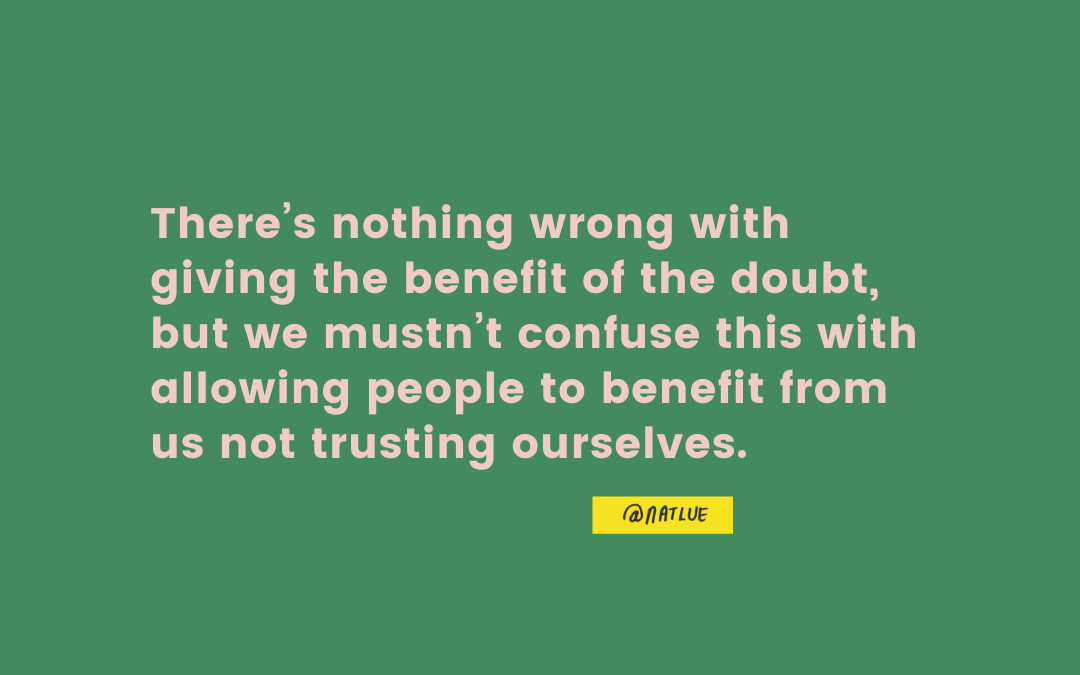Many humans pride themselves on being ‘good’ and ‘trusting’. This means that when we find ourselves in what might feel like the awkward predicament of not trusting someone, we feel bad about it. There can be this sense that we are bearing grudges, not giving second chances, making someone feel like a bad person who ‘can’t even make a mistake’.
Rather than acknowledge what occurred to cause us to doubt whether this person is loyal, credible, not going to do the thing that hurt, disappointed or pissed us off again, we judge us. We expend a great deal of our time, energy, effort and emotions–our bandwidth–on trying to work out their intentions or convince ourselves that their previous behaviour didn’t reflect ‘bad’ ones. What we do next is what we later refer to as having given the person in question the ‘benefit of the doubt’.
Here’s the thing: Giving someone the benefit of the doubt is an extension of trust. You’re gambling that this person either values earning your trust and building a long-term relationship (or regaining it after breaking it) rather than screwing you over in the short term.
Trusting someone is not the same as giving the benefit of the doubt, though. It’s not. They’re related, but giving someone a pass or another chance based on self-doubt is what occurs because you don’t trust them (or it’s certainly shaky). If you did, you’d give them the benefit of existing trust, not self-doubt. And how much we trust in others is really a reflection of how much we trust ourselves.
Giving someone the benefit of the doubt means that you are choosing to accept that what they state or intend is true because you don’t have proof otherwise.
So, for instance, you’re dating someone, and they say something snarky and petty on one date and cancel you at the last moment on another. You let them know that you won’t be seeing them again, and they tell you that it’s a misunderstanding. You’re reading too much into things, apparently. Maybe I am, you wonder. And they seem so sincere and keen to see you again that even though alarm bells are ringing in the pit of your stomach, you give them the benefit of your doubt. Not The Doubt, Your Doubt.
It’s easy to see how this can happen, after all, you haven’t, in your mind, proven their future behaviour. And us humans have a pesky habit of misremembering the past and deciding that our needs, boundaries, values, feelings or perception of things are ‘wrong’. So now that their response–remorse, denial, whatever it might be–has prompted doubt about your original discomfort, you doubt yourself.
There’s nothing wrong with giving the benefit of the doubt, but we mustn’t confuse this with allowing people to benefit from us not trusting ourselves. There’s a big difference. We definitely must not allow people to capitalise on the self-doubt they’ve created by gaslighting us.
In the end, it’s a question of whether you’re giving the benefit of the doubt because this person’s messing with your boundaries, or because you trust you enough to respond should further issues or doubts arise further down the line and this is a healthy interaction?

 Add to favorites
Add to favorites 
